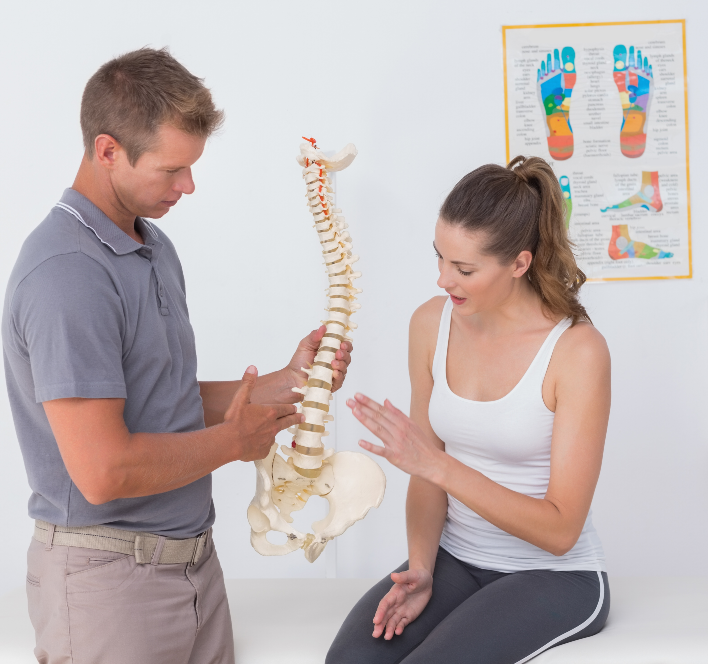Neck and back pain can severely hinder the way we live our daily lives. It can be hard to enjoy your day when something as simple as sitting in the wrong chair can cause you…
A herniated disc can be a difficult situation to deal with for anyone. It can disrupt your life and cut into your productivity by preventing you from living your life the way you normally would. If you suspect that you may have a herniated disc, there are several symptoms to consider, all of which may cause you pain if left untreated.
The signs that you might have a herniated disc can be difficult to detect. Herniation in the spine can cause patients to feel mild discomfort or debilitating chronic back pain. However, if you notice any of these three symptoms, it may be time to consult your physician on the possibility of a degenerative or traumatic condition of the spine that caused a herniated disc.
1. You Experience Persistent and Radiating Pain
Discomfort from a herniated disc occurs when the tough outer layer of an intervertebral disc ruptures and protrudes through its weaker inner area, creating a damaged disc. The result of this protrusion is mild to intense pain that radiates from the affected area of the spine and spreads into the extremities.
Herniated disc symptoms can differ greatly in severity according to the individual. Some people with herniated discs—particularly from the lumbar area of the spine—experience pain on only one side of the body, while others experience paralyzing pain throughout the entire torso and into both legs.
2. You Notice Muscle Weakness, Tingling, or Numbness
Many adults between the ages of 35 and 55 experience herniated discs. While the symptoms are not usually chronic, a flare-up can occur and may take weeks for the pain to dissipate. One of the most common symptoms is the sensation of tingling or numbness that spreads to the arms, hands, legs, and feet. It can feel like pins and needles, commonly described as a part of your body falling asleep, but the duration is much longer and more uncomfortable.
A similar symptom is decreased muscle strength. Herniated discs may create a lot of discomfort and result in an individual feeling as though they are unable to move certain muscles due to weakness or fatigue. Temperature therapy is a notable treatment for this kind of pain, although the results are often temporary.
3. You Have a Limited Range of Motion
Your spine is what keeps you upright and helps you to walk, run, and do any other physical activity you love. Nestled between the vertebrae of your spine are rubbery discs that absorb shock, and these are the source of your flexibility. Discs that receive too much pressure can force their soft center to breach the hard exterior, creating a herniation and pressing on nearby nerves that lead to intense pain.
Lumbar pain, as mentioned above, has the potential to reduce movement entirely if the discomfort is severe enough. Some individuals experience pain that is so intense, it leaves them bedridden and unable to move at all. If you or someone you love is experiencing a severely limited range of motion due to the pain from a herniated disc, contact an experienced spinal specialist.
Talk to a Renowned Herniated Disc Specialist at Orthopedic and Laser Spine Surgery
If you believe that you may have a herniated disc, you are putting yourself at more risk of back pain and injury by not seeking treatment. Even if you believe that the severity of your pain doesn’t warrant a visit to a physician, it’s important to get it checked out before the discomfort intensifies. If you have any of the pain signs listed above, it’s time to see your local orthopedic surgeon.
Don’t ignore your back pain for another day—get help now from the experienced and dedicated team at Orthopedic and Laser Spine Surgery. Give us a call at (855)-853-6542 or contact us online to book a free consultation today.

